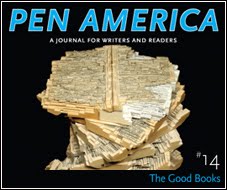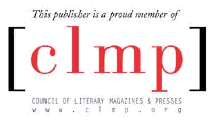 I had the honor of attending the 2010 Nobel Peace Prize ceremony in Oslo today as an official representative of PEN American Center. The ceremony, with its empty chair representing imprisoned writer and laureate Liu Xiaobo, was stunning and perfectly pitched in an especially Norwegian way—austere and straightforward, principled and direct. There were three particularly sustained, heartfelt ovations: when Nobel Committee Chair Thorbjørn Jagland said, early in his speech, that the response of the Chinese government to the award has in a sense validated the award; when he said Liu has done nothing wrong and must be released; and when he placed the Nobel medal and citation on Liu’s empty chair. I sat near many of our Independent Chinese PEN Center colleagues and other legendary dissidents and activists, and right next to the daughter of Wang Bingzhang, a prominent pro-democracy activist now in his eighth year of a life sentence in China; you can just imagine what the ceremony meant to her and to them.
I had the honor of attending the 2010 Nobel Peace Prize ceremony in Oslo today as an official representative of PEN American Center. The ceremony, with its empty chair representing imprisoned writer and laureate Liu Xiaobo, was stunning and perfectly pitched in an especially Norwegian way—austere and straightforward, principled and direct. There were three particularly sustained, heartfelt ovations: when Nobel Committee Chair Thorbjørn Jagland said, early in his speech, that the response of the Chinese government to the award has in a sense validated the award; when he said Liu has done nothing wrong and must be released; and when he placed the Nobel medal and citation on Liu’s empty chair. I sat near many of our Independent Chinese PEN Center colleagues and other legendary dissidents and activists, and right next to the daughter of Wang Bingzhang, a prominent pro-democracy activist now in his eighth year of a life sentence in China; you can just imagine what the ceremony meant to her and to them.Two other huge highlights, post-ceremony: I visited a preview of the exhibition on Liu Xiaobo at the Nobel Peace Center that will open tomorrow. I was overwhelmed
 when I walked into the room, glanced over to the first wall you see, and there were three video monitors playing, from left to right, Liu Xia speaking in Beijing in March 2010, PEN’s New Year’s Eve rally, and Liu Xiaobo talking about freedom of expression. Across the room, flanking an enormous, beautiful photo of Liu, were two banners, one with Jeffrey Yang’s translation of Liu’s poem “Daybreak” and one with Don DeLillo’s text for Liu. There it was, for the world, so much of all of PEN’s amazing work.
when I walked into the room, glanced over to the first wall you see, and there were three video monitors playing, from left to right, Liu Xia speaking in Beijing in March 2010, PEN’s New Year’s Eve rally, and Liu Xiaobo talking about freedom of expression. Across the room, flanking an enormous, beautiful photo of Liu, were two banners, one with Jeffrey Yang’s translation of Liu’s poem “Daybreak” and one with Don DeLillo’s text for Liu. There it was, for the world, so much of all of PEN’s amazing work.Also touring the exhibition preview was Nancy Pelosi; as she was leaving she gave an impromptu press conference, in which she spoke with incredible humanity and passion about what this day means for so many who have worked (as she has) for so long to bring attention to China’s human rights record. Generous, eloquent, clearly moved by the ceremony and the exhibition, she did us all proud.

Here’s to Liu Xiaobo. Here’s to freedom of expression in China.
Larry Siems is the Freedom to Write and International Programs Director at PEN American Center.
Photographs, from top to bottom: Nobel Peace Prize Ceremony, Larry Siems; Nobel Peace Prize Exhibition at the Nobel Peace Center, Larry Siems; Torchlight Procession outside Oslo's Grand Hotel, where the laureate typically greets well-wishers, Marian Botsford Fraser.


